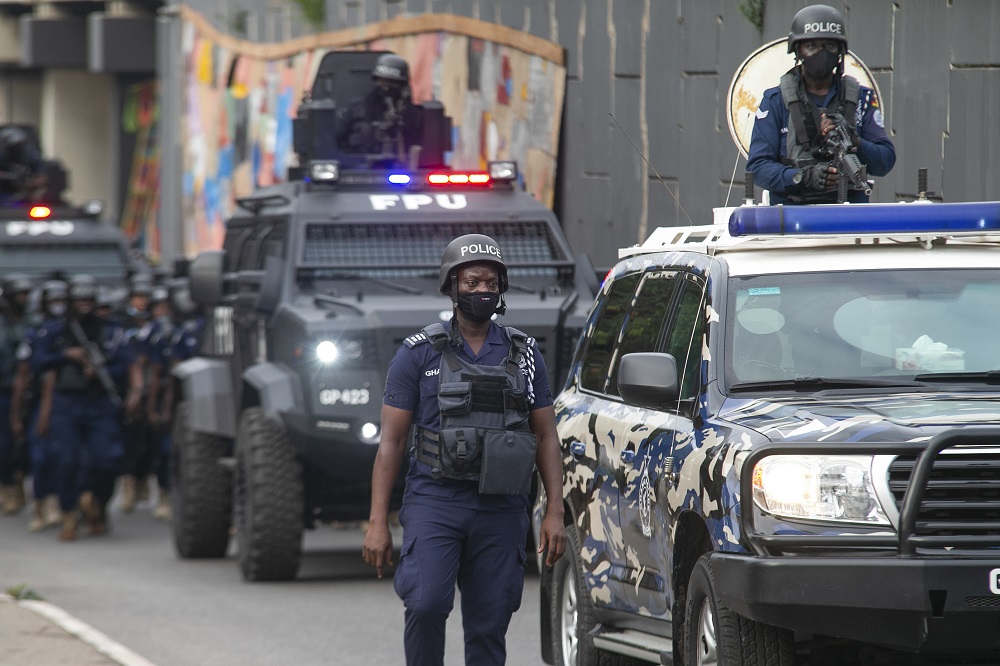Three years after the killing of Ghana journalist Ahmed Hussein-Suale, the IPI global network expresses deep concern over the lack of progress in the murder investigation.
Hussein-Suale, an investigative journalist working for the organization Tiger Eye, was shot dead on January 16, 2019, by unidentified assailants while on his way home from work in Accra, the Ghanaian capital. Police arrested six persons on suspicion of involvement in the killing one month later, but soon thereafter released all of them due to lack of evidence.
Three years later, no new suspects have been arrested, according to Sammy Darko, Tiger Eye’s lawyer. “We are not involved in the investigations because that is done by the police. But so far as we know, there has not been any progress on the case“, he told IPI in an interview.
Darko said the last known development in the case came in July 2021, when Ghana’s attorney general informed Parliament that no suspects had been charged or prosecuted. “The attorney general then revealed that Suale‘s phone was sent to an American company for it to be decoded and had returned back to Ghana. The cyber security department of Ghana can now go through the records like documents, videos, and text messages”, Darko said. “But apart from that, there has not been any progress.“
Ghanaian authorities must use any new information to expedite the investigation into the killing of Ahmed Hussein-Suale, IPI Deputy Director Scott Griffen said today.
“It has been three years since the killing, and the fact that no suspects have been arrested is unacceptable and a serious stain on Ghana’s human rights record and rule of law in the country”, Griffen said. “Authorities in Ghana must end the impunity for the murder of Hussein-Suale now and secure justice for him and his colleagues at Tiger Eye. This case cannot be allowed to be forgotten. We also call on the authorities to ensure that all journalists working for Tiger Eye feel safe and able to do their work without fear.”
Tiger Eye is known for its undercover exposure of corruption and human rights abuses in Africa, frequently employing tactics such as disguises and hidden cameras. Hussein-Suale was part of a 2018 Tiger Eye investigation that revealed mass corruption in African football just prior to the World Cup.
In a 2019 interview, Anas Aremeyaw Anas, the head of Tiger Eye, told IPI that “people in football are very rich people (and) there are some powerful sources making sure that we don’t find (Ahmed’s) killer”. Whether that is still the case, Darko said he cannot say. “As a lawyer I am looking at the facts. And I can say it has been slow and there has not been much progress. But also in general, we have not had much success in resolving murder cases in Ghana (…).”
Darko told IPI that Ghana has a new inspector general of the police. “But he has not spoken about this matter, and what he is doing to expedite investigations into it.”
The ongoing investigations into the murder of Hussein-Suale have had a strong effect on Tiger Eye’s editors, who continued the work after his death. “The team is in a constant state of vigilance. You never know who might be unhappy with your work and may want to harm you like Suale was harmed. After Suale was killed, the Tiger Eye team has done three more similar investigations. So the team is very watchful of their security.”
According to Darko, the team has not received new reports of open threats, but has been regularly targeted by Ghanaian MP Kennedy Agyapong, who has continued a campaign of hostility against the team for years now, saying he was offended by its undercover methods and publicly calling for Anas to be hanged. “He has not stopped piling pressure on Tiger Eye in an attempt to discredit them and frame them as bad guys that society should not support. Any platform that he gets, he keeps on attacking the platform, saying it is not genuine journalism. It is a continuous war against Tiger Eye.”



